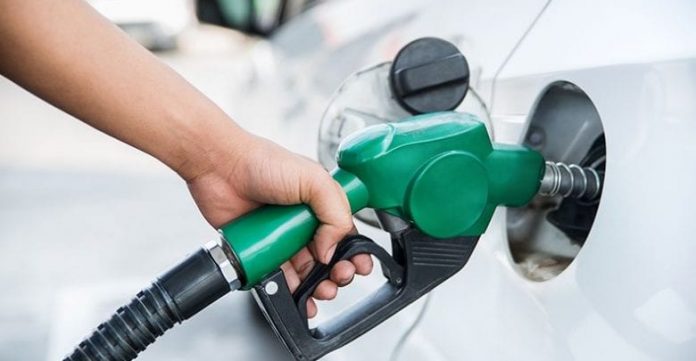Local refiners won’t end fuel crisis if market is unregulated – Marketers

Despite the four local refineries in Nigeria having a combined capacity of 450,000bpd, oil marketers and energy experts have expressed diverse views on whether they can end the lingering fuel crisis in the country if fixed by the Bola Tinubu-led administration.
The four state-owned refineries in the country located in Port Harcourt, Kaduna, and Warri have stopped operations since 2019, forcing the Federal Government into foreign refining of its crude oil, which has grossly affected the fuel supply and economic stability of the country.
In a bid to fix the Port Harcourt refinery, the Federal Government in 2021 approved the sum of $1.5 billion, but the refinery, which has a total capacity of 210,000bpd has yet to restart operations since then.
The Federal Government initially said the refinery plant would commence operations in December 2022. Later, it shifted the commencement date to the end of the first quarter of 2023, but nothing else came out of it.
However, on Monday, the National Public Relations Officer, Independent Marketers Association of Nigeria, Chief Ukadike Chinedu, said the PH refinery may now commence operations by the end of July after several postponements.
Meanwhile, the Managing Director of the Kaduna Refining and Petrochemicals Company, Mustafa Sugungun, has said the rehabilitation of the Kaduna refinery would be completed by the end of 2024 after years of being shut down due to lack of maintenance.
Speaking during an oversight visit to the refinery by members of the Senate Adhoc Committee on Petroleum Downstream led by Senator Ifeanyi Ubah, in April, Sugungun explained that the 110,000-barrel-per-day refinery would start producing at 60 per cent capacity by the end of the year, while full production will take place subsequently.
Recall that the acting Managing Director of the Warri Refining and Petrochemical Company (WRPC), Desmond Inyamah, had said the refinery would commence full operations in December 2023.
Disclosing this when members of the House of Representatives ad-hoc committee over-sighting the refinery projects visited to inspect the level of maintenance of the Warri refinery, Inyamah said the last time maintenance work was done at the WRPC was in 2004 and 2005.
The Chief Corporate Communications Officer of the Nigerian National Petroleum Corporation Limited, Olufemi Soneye, also told our correspondent in February that the mechanical completion of the Warri refinery would be completed in the first quarter of this year.
However, speaking in separate interviews with Sunday PUNCH at the weekend, the oil marketers and experts argued that even if the current administration moves speedily to get the four refineries into full operations in the next few months, the consistent fuel crisis in the country may still not be completely eradicated because the refineries would likely face supply constraints of crude oil.
In his submission, the President of the Petroleum Products Retail Outlets Owners Association of Nigeria, Dr Billy Gilly-Harry, said though there were strong indications that the Port Harcourt Refinery would start operation anytime soon, the Tinubu’s administration should work on putting the entire four refineries into full operations in other to ease the country’s consistent fuel crisis.
He said, “It is difficult for me to confirm any date for the Port Harcourt Refinery re-operation. But I had a physical visit to the place a few weeks ago and what I saw was good enough to go. But they (NNPCL) don’t want to announce anything again, because they don’t want Nigerians to have issues. We were hoping that on the 29th of this month, the Warri refinery would go live, while the Port Harcourt one would come onboard shortly after. But since the management of the PH refinery has projected a date for its reactivity in July, we can’t say anything more about it.
On whether the full operationalisation of the four refineries would reduce the price of fuel in the country and the artificial scarcity of the product, he said that cannot be guaranteed, except the Consumer Protection Council and other agencies emplace strict price regulations in the market.
“The price of fuel in a deregulated petroleum product regime will be determined by the cost of demand and supply. If the Consumer Protection Council is working optimally, there should be a source of control so that we, the retail outlet owners, will not unnecessarily hike fuel prices once the refineries take off. Though we have our internal mechanisms to regulate ourselves in as much as we have the NMPDRA, the CPC should also put in their efforts to protect the consumers,” he explained.
Also speaking with Sunday PUNCH, IPMAN Vice President, Hammed Fashola, said full operation of both the Port Harcourt refinery and the Dangote Refinery would serve as a “big relief for everybody” in the country if it can be achieved.
He said, “It is very important and I believe the government is working towards that. If the Port Harcourt refinery can come up this year, and maybe the Warri refinery next year, my concern about the whole thing is the Kaduna refinery which has been abandoned for years. I don’t know if it is still good or available to transfer crude. I think the government has to look at that before they start pumping money into it. That is very key because there will be further constraints and it will be useless.
However, in his submission, an energy expert and lawyer, Mr Ayodele Oni, stated that even though the refineries were completed, it would be difficult for them to meet Nigeria’s fuel needs, because there had been an onward sale of the country’s crude oil for years to come.
“There have been debates whether we have enough crude because of the faulty agreement the government has reached having sold out our future crude so even if you have a refinery and you don’t have enough crude, there is a challenge there,” he said.
The expert further urged the Federal Government to boost its investment in oil exploration and production to ensure a stable supply of fuel in the country.






